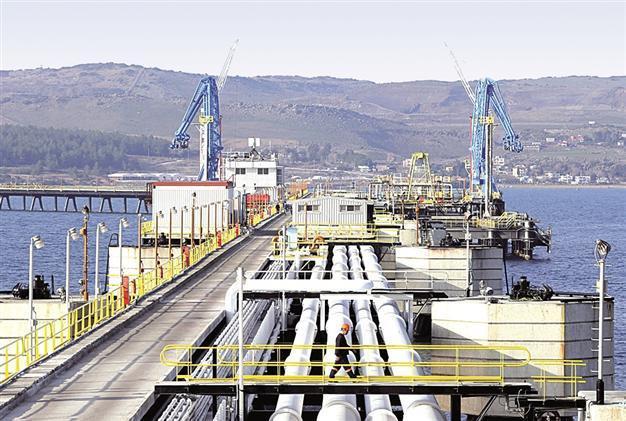Turkey to boost security for energy infrastructure
ISTANBUL - Reuters

REUTERS photo
Turkey will deploy thermal cameras and horse-back patrols to heighten security around key oil and gas pipelines as the outlawed Kurdistan Workers Party (PKK) increase, in a bid to safeguard energy supplies in the import-dependent country, energy officials said.Tighter security around energy infrastructure would be welcomed by Kurdistan Regional Government (KRG) in neighboring Iraq, whose oil exports to the world are piped through Turkey. A recent attack on the line has cost it more than $250 million by halting oil pumping.
The PKK said in mid-July it was stepping up attacks over what it claimed were cease-fire violations by the Turkish state.
Attacks have become almost daily since Ankara began air strikes on PKK camps in northern Iraq on July 24, in what Prime Minister Ahmet Davutoğlu has called a “synchronised fight against terror.”
Other targets
Other energy infrastructure has also become a target. The Azeri Shah Deniz pipeline and the Iranian pipeline, which carry a total of 16 billion cubic metres of gas annually, came under attack within the last 10 days.
Oil flow in the Iraq-Turkey pipeline, carrying Kurdish and Kirkuk oil to Turkey’s southern port of Ceyhan, resumed on Aug. 6 after a week-long shutdown following a PKK attack, a Turkish energy official and a shipping agent told Reuters.
“The risks for companies who are supplying to or through Turkey has increased quite a bit in the light of recent attacks,” according to one energy industry official in charge of pipeline operations involving Turkey.
Turkey dependent in energy
With few hydrocarbon reserves of its own, Turkey purchases 98 percent of its natural gas and more than 90 percent of its crude oil from foreign producers. The imports, estimated at $61 billion worth in 2014, help to swell its current account deficit, which reached $45.84 billion the same year.
Bombing energy infrastructure therefore was an effective tactic commonly used by the PKK in the 1990s.
“It seems PKK is going back to its old methods of damaging the energy infrastructure,” a senior energy official said. “We have been seeing signals of this. These attacks hurt both our citizens and other countries using Turkey as transit hub.”
The 650 kilometer-long portion of the Iraqi pipeline stretching from the Turkish border town of Silopi to the southern port of Ceyhan will be protected with new thermal cameras. They will be set up on locations along the pipeline identified as most vulnerable to attacks.
Horse-back patrols will also be dispatched to monitor the pipelines, officials said. They declined to share more details on the planned measures for security purposes.
The measures will also be designed to halt theft of oil by people tapping the pipeline, which has become increasingly common in border provinces Mardin and Şanlıurfa.
















